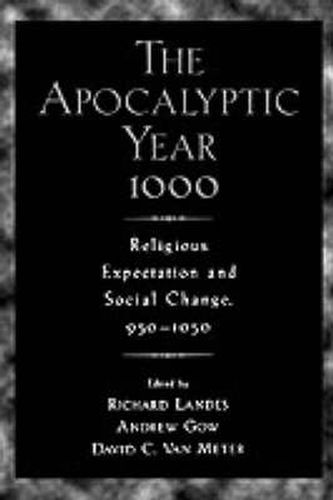Readings Newsletter
Become a Readings Member to make your shopping experience even easier.
Sign in or sign up for free!
You’re not far away from qualifying for FREE standard shipping within Australia
You’ve qualified for FREE standard shipping within Australia
The cart is loading…






The essays in this book challenge prevailing views on the way in which apocalyptic concerns contributed to larger processes of social change at the first millennium. Several basic questions unify the essays: What chronological and theological assumptions underlay apocalyptic and millennial speculations around the Year 1000? How broadly disseminated were those speculations? Can we speak of a mentality of apocalyptic hopes and anxieties on the eve of the millennium? If so, how did authorities respond to or even contribute to the formation of this mentality? What were the social ramifications of apocalyptic hopes and anxieties, and of any efforts to suppress or redirect the more radical impulses that bred them? How did contemporaries conceptualize and then historicize the passing of the millennial date of 1000? Including the work of British, French, German, Dutch, and American scholars, this book will be the definitive resource on this fascinating topic, and should at the same time provoke new interest in and debate on the nature and causes of social change in early medieval Europe.
$9.00 standard shipping within Australia
FREE standard shipping within Australia for orders over $100.00
Express & International shipping calculated at checkout
Stock availability can be subject to change without notice. We recommend calling the shop or contacting our online team to check availability of low stock items. Please see our Shopping Online page for more details.
The essays in this book challenge prevailing views on the way in which apocalyptic concerns contributed to larger processes of social change at the first millennium. Several basic questions unify the essays: What chronological and theological assumptions underlay apocalyptic and millennial speculations around the Year 1000? How broadly disseminated were those speculations? Can we speak of a mentality of apocalyptic hopes and anxieties on the eve of the millennium? If so, how did authorities respond to or even contribute to the formation of this mentality? What were the social ramifications of apocalyptic hopes and anxieties, and of any efforts to suppress or redirect the more radical impulses that bred them? How did contemporaries conceptualize and then historicize the passing of the millennial date of 1000? Including the work of British, French, German, Dutch, and American scholars, this book will be the definitive resource on this fascinating topic, and should at the same time provoke new interest in and debate on the nature and causes of social change in early medieval Europe.